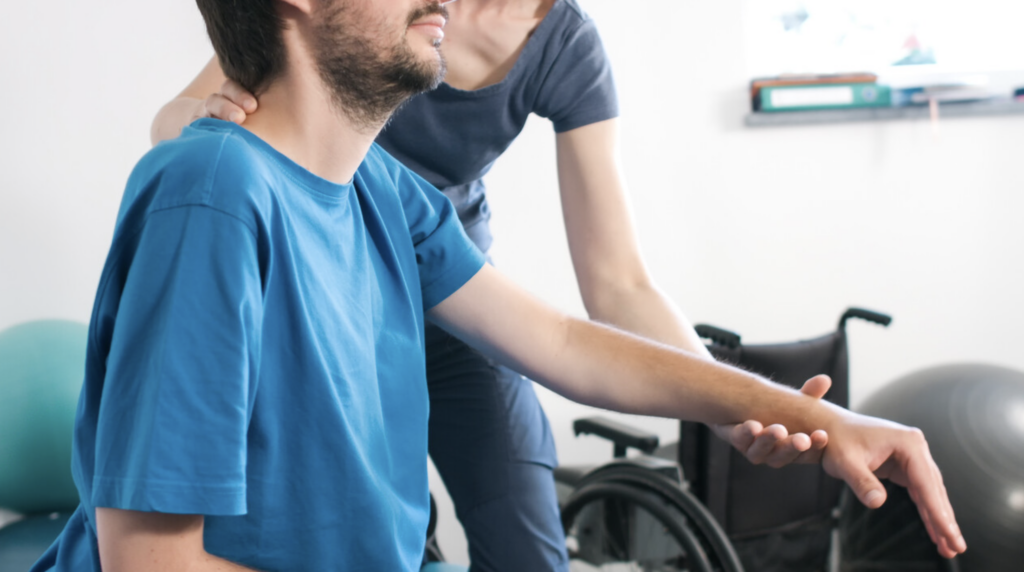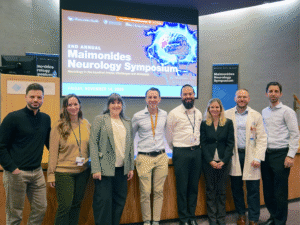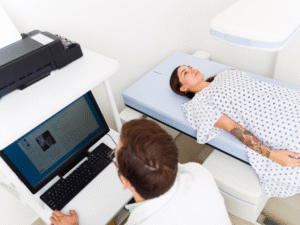For patients with muscular dystrophy—a category of more than 30 diseases characterized by muscle weakness and progressive muscle loss—the odyssey toward diagnosis, then finding a skilled care team, can be a major challenge. “There aren’t many specialists trained to treat neuromuscular diseases, so clinics have long waiting lists and patients can’t necessarily travel to them,” explains Nuri Jacoby, MD, Assistant Professor in the Department of Neurology. “Meanwhile, the symptoms they experience from their conditions can be profound, from the inability to walk to difficulty chewing or swallowing.”
To bridge this gap and bring expert care for patients with the wide range of neuromuscular conditions closer to home, Maimonides has established an MDA Clinic in partnership with SUNY Downstate, which is currently home to the only other MDA-certified clinic in the Brooklyn area. MDA Clinics are sponsored by the Muscular Dystrophy Association and reviewed annually to ensure they meet certain benchmarks of quality care and see enough patients to maintain their level of expertise. “The care we deliver here is multidisciplinary,” explains Dr. Jacoby. “A whole team of specialties, including neurology, rehabilitation, occupational and physical therapy, social work, cardiology, pulmonology, and orthopedics come together to provide comprehensive care for every aspect of these patients’ conditions.”
The spectrum of diseases treated at the clinic is vast. The most common form of muscular dystrophy, Duchenne, affects one in 3,500 boys and typically presents in early childhood. “Usually, parents will notice their baby has low muscle tone, or seems ‘floppy,’” explains Simona Treidler, MD, a neurologist and neuromuscular specialist at the clinic. “Later, these children tend to develop large calves due to muscle fibrosis, and often experience significant developmental delays.”
Other genetic neuromuscular disorders and non-genetic conditions such as amyotrophic lateral sclerosis (ALS), become symptomatic much later in life. One of many significant benefits of care at a MDA clinic is that its specialists are skilled in caring for patients of all ages, and as patients transition from childhood into adulthood.
Though limited treatment options have existed for these patients until recently, experts point to advancements such as gene therapy as potential game-changers. A gene therapy for spinal muscular atrophy, for instance, has offered some children a significantly longer lifespan with greater function. The FDA has approved five medications for Duchenne muscular dystrophy in the past five years, and three gene therapies are in later-stage trials for that condition. Ongoing clinical trials in ALS also offer hope. “This is a very exciting time in neuromuscular medicine,” says Dr. Jacoby.
Ongoing care at an MDA Center such as Maimonides’, the experts add, can offer supportive strategies that substantially improve patients’ quality of life. In addition, with many of these conditions included in New York State’s Newborn Screening Program, gene therapies can be given to the youngest patients as they are approved. “There is a lot of hope and optimism,” adds Dr. Treidler. “We’re grateful to be able to bring the best that medicine can offer to our patients at this clinic in Brooklyn.”




